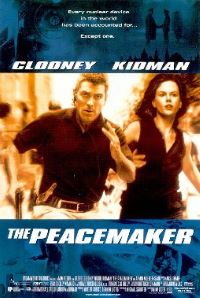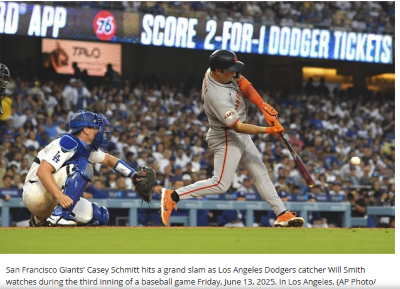
The history community does not do a good job advocating for itself. I am not referring to the actions an individual history organization may take on behalf of its own organization. Instead I am referring to collective action on behalf of the entire history community within the state. The major exception to this generalization is the historic preservation community. It sometimes has its own statewide organizations, conferences, and agenda items for lobbying state legislators. Unfortunately, the history community itself may be lacking such an organized and concerted effort.
To some extent the Massachusetts History Alliance was created to address this shortcoming. According to its website (officially “under construction’):
MHA has advocacy priorities in three areas: advocacy for public history to the legislature, advocacy to the public history field, and advocacy for public history to the general public.
The MHA advocates for legislative initiatives that fund local and public history efforts in the Commonwealth. This includes the provision of opportunities that make it easier for smaller organizations to survive, such as grant opportunities or tax credits.
The MHA promotes the message that a vibrant history community is good for local businesses and contributes to our state’s economic vitality.
The MHA advances the idea that an awareness of local and public history is an essential component of civic engagement.
The MHA endorses the funding of regional networks and collaborative efforts that positively impact local and public history in Massachusetts. It encourages the development of greater communication between the numerous and distinct history organizations across the state.
The MHA supports entities that encourage the preservation of historic buildings, objects and documents.
The MHA advocates for the continued funding of its Annual Conference.
So far after having attended several of its annual conferences (blogs on the 2015 and 2017 conferences), I am not sure how far it is progressed in actually having a history advocacy day at the state capital on behalf of a specific history agenda.
With these thoughts in mind, I attended the session “Make Your Case, Make a Difference: Advocacy Tools for the Small, Busy, and Passionate” at the conference. The session was dedicated to providing tools or tricks of the trade for individual history organizations to use to advocate on behalf of individual history organizations. In other words, it was all about how you as the executive director/president could speak to your own legislator if you happen to meet that person in an elevator at the state capital. The session was entirely geared towards individual people representing individual organizations advocating for individual items on behalf of the individual organization.
This session had nothing to do with what the history community really needs. In this regard, it was eerily similar to another advocacy session I attended years ago at another state conference. The issue facing the individual history organizations is not how to advocate with their own legislators for themselves. People are quite capable of doing that at home without going to the state capital. History organizations are quite capable of inviting their own state representatives to their own site. History organizations are quite capable of contacting their own state representatives about some pressing need at home in their own community without traveling to the state capital. In fact, history organizations frequently are quite capable of speaking personally to their state representative without all the protocols presented in the session or hoping for a chance meeting in the hallway or in the elevator.
By coincidence our newly reactivated local historical society had a pizza night at a local restaurant a few days ago for those who have helped to reactivate it. Guess who stopped by? Our local state legislator who lives in the area! We really do not need to go to the state capital to meet with him.
Invite Congress to Visit Your Museum
The American Alliance of Museums (AAM) has created its own program for meeting elected officials at the federal level (for details click here).
Inviting local, state and federal elected officials and their staff members into your museum is a uniquely powerful way to show them what museums are and what museums do – from world-class exhibitions to working with local students and community members on critical life skills. There’s never been a more important time to engage with the elected officials and stakeholders that represent your museum.
The August Congressional Recess is a great time to get started, but any time of year is a good time to invite your legislators into the museum. We make it easy to participate with this step-by-step “How To” guide that can be used to connect with your elected officials throughout the year. Use the Alliance “How To” Guide below to get started today, and don’t forget to use #InviteCongress on social media!
There is no inherent reason why something comparable could not be created at the state level.
So what then do the individual history organizations need at the state level to do this?
There are two items.
1. Statewide history concerns
2. Statewide organization to arrange for a history advocacy day in support of the statewide history concerns.
The Massachusetts History Alliance conference is co-sponsored by Mass Humanities. Everybody has a state humanities organization. Everybody has a state arts organization. Everybody has a state organization that helps fund exhibits, lectures, and public programs. What is its budget? Is the funding of this organization or these organizations depending on how the functions are set up in the state of interest to the history community? Obviously. Equally obviously, it also is of interest to other museum such as art and science museums. Sometimes differentiating these organizations is problematic. Albany Institute of History and Art. Bundy Museum of History and Art. Museum Advocacy Day at the nation’s capital takes this approach. Why not do the same at the state level?
Mass Humanities has two grant programs specifically geared towards local history. The Research Inventory grants provide a maximum of $2000 to fund inventory projects at small historical organizations. The Scholar in Residence grants are for up to $3500 to enable organizations to draw on a level of expertise not normally available to them to research that entity’s collection or mission. What is the total pool of funds available for these local history grants? Could that total be increased? Could the maximums be raised? Could the history community lobby for such increases? What about the equivalent programs in other states? If you do not have one, could the history community advocate for their creation? If you do have them, could you advocate for additional funding?
Another supporter of the Massachusetts History Alliance conference is the Massachusetts State Historical Records Advisory Board known locally as SHRAB. One popular program is the Roving Archivist. Just as Mass Humanities can send a scholar to your organization, SHRAB can send an archivist to your site. It can assist in the purchase of materials and supplies needed for archival purposes. It conducts training sessions and workshops on archival related matters. What is its budget? Could it be more? Does your state have something comparable? If not, why not? If you do have them, could you advocate for additional funding?
A third type of funding is for anniversaries. In a recent blog I wrote about the newly created federal commission for the American Revolution 250th. My impression is that this commission will be of little use locally at least for years to come. Massachusetts cannot wait for 1776 or even 1775. The 250th anniversary of the Boston Massacre is next year. The time for advocating for funding for statewide programs on behalf of what happened in 1770 is already past due….just as it is in virtually all states. Maybe the history community could use the same funding apparatus created to celebrate the Suffrage Centennial for the American Revolution!!!!
Since I wrote the blog on the American Revolution, I received an email from Johanna Yuan, the Orange County historian in New York. She included a draft of a resolution to be submitted to the Orange County legislature on plans for the commemoration of the 250th. It identifies 1775-1783 as the relevant time period deliberately to expand beyond the federal legislation. The theme will be “Which Side Are You On?” with the intention of provoking discussion of history and historical implications of the events that took place in the Hudson Valley, New York State and beyond. The format is to have yearly themes related to the events of 1775 to 1783. This approach is similar to the one Fort Ticonderoga has used for presenting the French and Indian War. I suggested the same approach be taken in the state at a meeting held by Devin Lander, the New York State historian but starting before 1775 if possible. Johanna’s actions demonstrate what can be done at a local level without waiting for federal and/or state action.
And what about regional cooperation. Those canons from Fort Ticonderoga did not magically appear outside Boston to relieve the siege there. Will there be an event following the route? And to the best of my knowledge Rochambeau did not make use of airports to go from Rhode Island to Virginia although I recognize that I may be in error here. For that matter militias from throughout New England participated in battles in New York and were camped here. So we need to think not only about our county and state but about our region.
One final item for history advocacy comes from New York. This is the Museum Education Act sponsored by the Museum Association of New York (MANY). Although one would not know it from the name, it is about busing, the funding of buses for school trips to museums. So it is not a history program per se but for all museums. The bill passed the Senate and the Assembly in this past session but was not signed by the Governor. One may anticipate a new and improved bill to be submitted in the 2020 session. Busing expense is a chronic and widespread problem with school visits. It is something history communities very could advocate for.
Speaking of education, I have left out two critical areas involving local history. First the training of teachers in local history and second, the incorporation of local history into the curriculum. Those are huge topics.
So there is plenty for the history community to advocate for should the history community ever get its act together and establish a history advocacy day at the next session of your state legislature.





